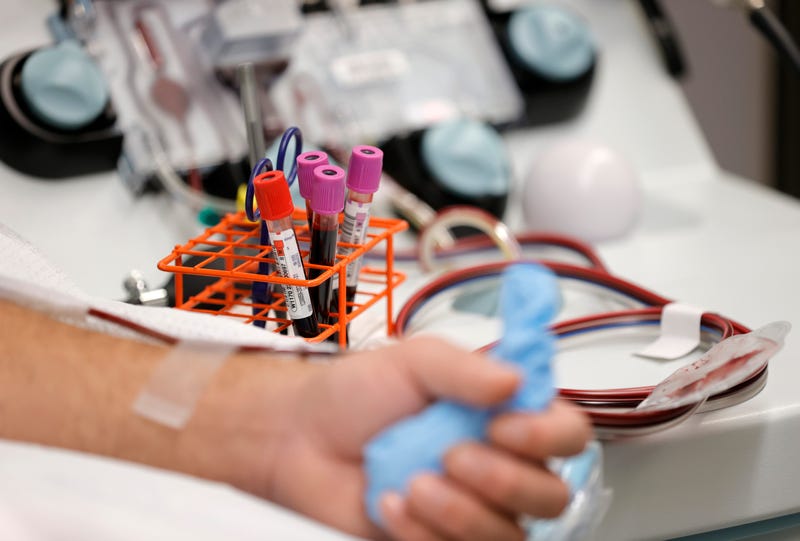
The American Red Cross is sounding the alarm on a critical shortage of lifesaving blood, but it didn't happen overnight. Blood donations are at a 20-year low, with a loss of hundreds of thousands of donors since the COVID-19 pandemic.
"This emergency blood shortage unfortunately had been building over time," said Dave Skutnik, regional communications director of the American Red Cross of Southeastern Pennsylvania.
"We're seeing fewer donors coming out to drives as more people are working from home and we saw many schools and businesses close. And some just simply haven't opened their doors to blood drives like they did before COVID."
And that, Skutnik said, has very serious implications. Because of the shortage, doctors are having to make life-and-death decisions about which patients get transfusions. Hospitals are also delaying surgeries to wait for available blood.
Now, cold and flu season and the recent extreme weather are complicating matters further.
"The weather this time of year also presents a challenge," Skutnik added. "We had to cancel a blood drive today due to the location being without power. All of these things come together to make the emergency blood shortage even worse."
Individuals who are 17 years of age in most states (16 with parental consent where allowed by state law), weigh at least 110 pounds and are in generally good health may be eligible to donate blood. All blood types are desired, but type O and platelets are most urgently needed.
"We need healthy individuals to donate now and throughout the winter to help patients counting on lifesaving blood," Skutnik urged.
How To Donate Blood
Donating blood is safe and simple. Whether you choose to give through a mobile blood drive or at a donation center, the process is very similar. Find a donation center or blood drive near you and make an appointment today. You can do that online at redcross.org or by calling 1-800-RED-CROSS.
The blood donation process from the time you arrive until the time you leave takes about an hour. The donation itself is only about 8-10 minutes on average. You'll answer a few questions about your health history and a staff member will check your temperature, pulse, blood pressure and hemoglobin level.
When approximately a pint of whole blood has been collected, the donation is complete. After donating blood, you'll wait 10-15 minutes, have a snack and something to drink in the refreshment area, and then continue your normal routine.
